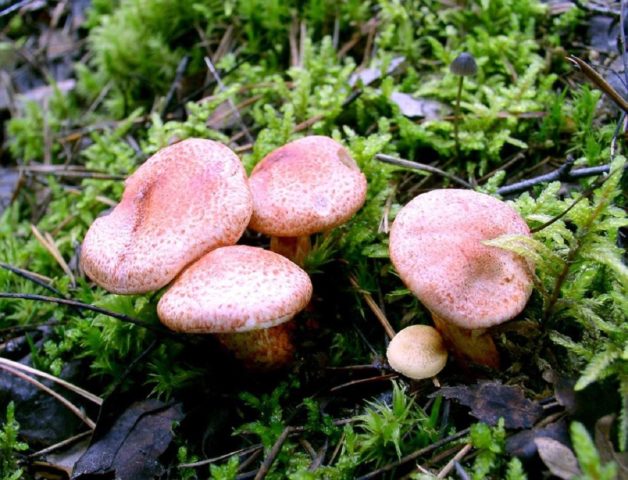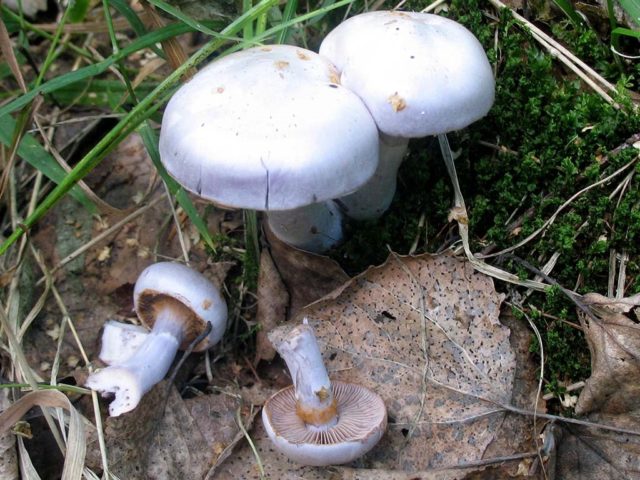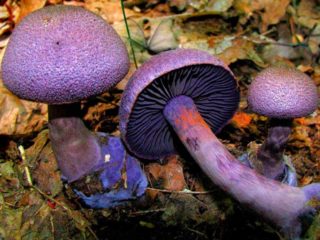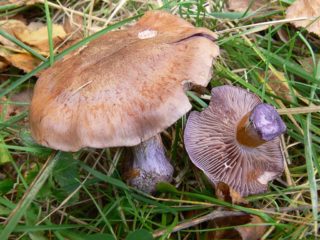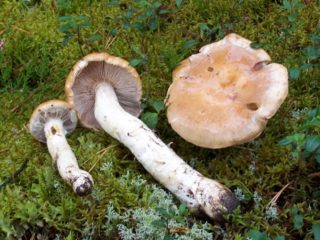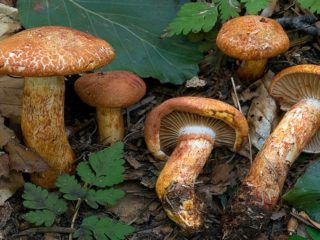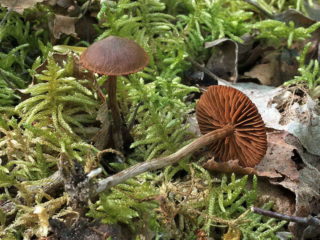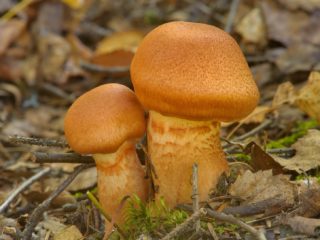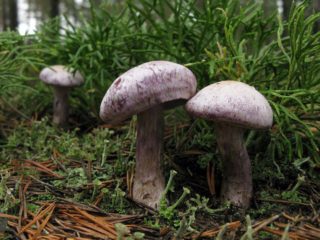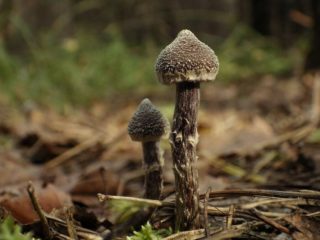Content
The bluish-belted webcap is an inedible representative of the Cobweb family. Grows in mixed forests on moist soil. Since the species is not used in cooking, you need to carefully study the description, view photos and videos.
What does a bluish-belted spider web look like?
Acquaintance with the bluish-belted spider web should begin with a description of the cap and leg. Also, in order not to harm your body, it is important to know the place and time of growth, as well as be able to distinguish between similar twins.
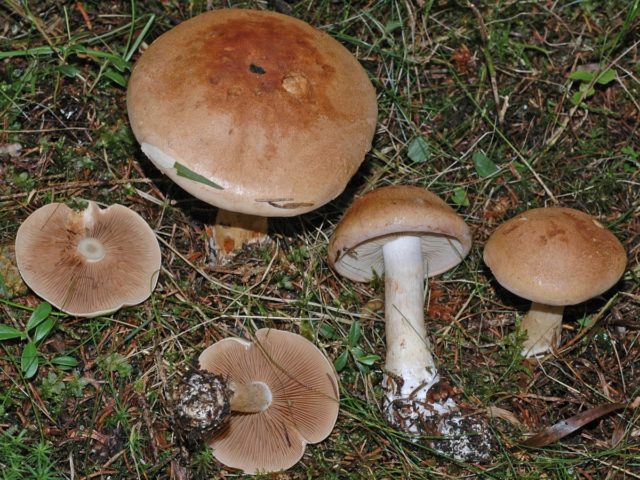
Grows in moist soil
Description of the hat
The hat of this representative is small, no more than 8 cm in diameter. The matte surface is painted brown with a grayish-sky tint, sometimes purple spots appear along the edges. The spore layer is formed by rare brown plates. The pulp is dense, tasteless and odorless.
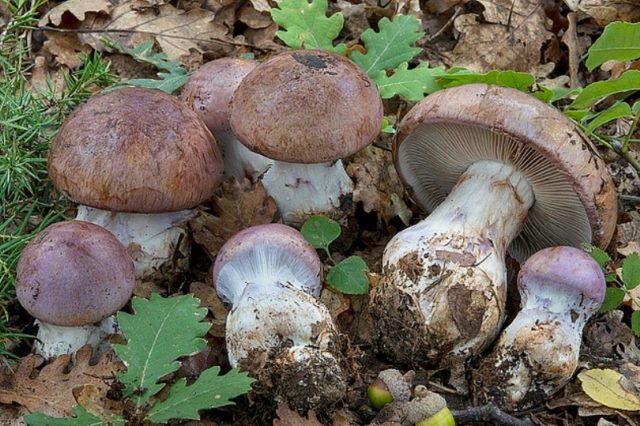
In young specimens, the lower layer is covered with a thin cobweb.
Leg description
The elongated leg is 10 cm high. The surface is light gray, covered with a mucous layer. The upper part is surrounded by a thin ring.
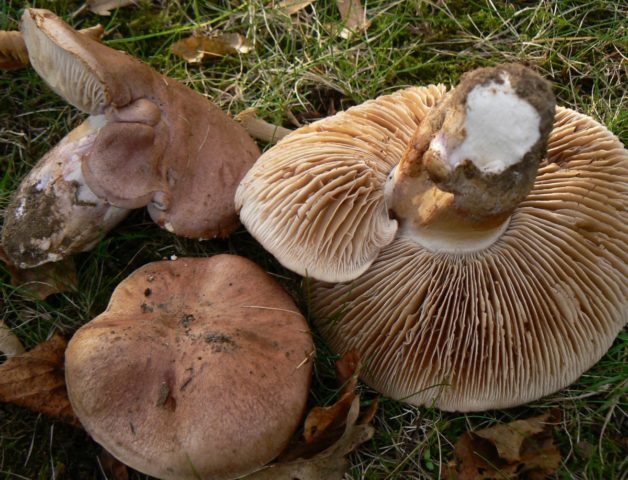
Fleshy leg, tasteless and odorless
Where and how it grows
The bluish-belted webcap prefers to grow on moist soil among deciduous and coniferous trees. Fruiting from August to October. Reproduction occurs by elongated spores, which are located in brown spore powder.
Is the mushroom edible or not
This specimen, due to the lack of taste and smell, is not eaten, it is classified as inedible. Therefore, during mushroom hunting, it is important to know the external data, and when meeting an unfamiliar species, pass by.
Doubles and their differences
The bluish-belted webcap, like any inhabitant of the forest, has similar twins. Among them there are conditionally edible and poisonous species. Therefore, so that a dangerous specimen does not end up on the table, it is important to know the differences and view the photo.
Meeting doubles:
- The peacock is a deadly poisonous mushroom. In juvenile species, the spherical surface is covered with a brownish-red skin with small scales. As it grows, the cap straightens and cracks. Grows in the European part of Russia among deciduous trees. Fruiting from September to November.
May be fatal if eaten
- White-purple - belongs to the 4th group of edibility. The bell-shaped surface straightens with age, leaving a small mound in the center. The silvery-lilac skin is covered with mucus. The color lightens as it grows and becomes gray-whitish by full maturity. Grows in deciduous forests, from August to October.
In cooking, it is used fried and stewed.
Conclusion
The bluish-bordered webcap is an inedible species. It prefers to grow in moist, calcium-rich soil. Fruiting in autumn, not used in cooking.
